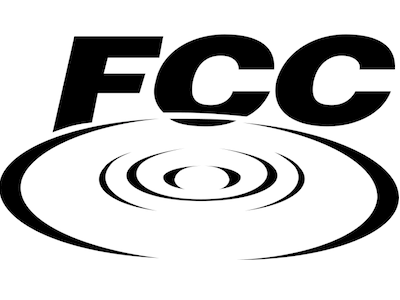The FCC's Proposal To Nuke Net Neutrality

The Federal Communications Commission (FCC) released its proposal to end Obama-era net neutrality protections today, the day before Thanksgiving, with plans to vote on December 14.
The proposal would effectively allow internet service providers (ISPs) to charge their customers more to access specific content, create “slow” and “fast” lanes for specific traffic, and outright block some websites, among other things. It would also prevent states from introducing their own laws to preserve net neutrality within their own borders.
This rollback of Obama-era protections doesn’t come as a surprise. FCC chairman Ajit Pai has repeatedly said that net neutrality laws have prevented ISPs from expanding their networks to create jobs and serve more people. Efforts to push back against those claims, such as a Last Week Tonight segment that urged viewers to support net neutrality, have been dismissed by the agency.
At the heart of Pai and the FCC’s argument is the notion that the net neutrality protections introduced in 2015 represent a regulatory overstep that hinders ISPs’ ability to grow without offering consumers any meaningful benefits. Instead, Pai wants the Federal Trade Commission (FTC) and existing antitrust laws to be the only things standing up for a free and open internet.
Well, that’s all he wants from a regulatory standpoint, anyway. The proposal would also include one other form of “protection”—transparency. To quote from the proposal:
Next, we require ISPs to be transparent. Disclosure of network management practices, performance, and commercial terms of service is important for Internet freedom because it helps consumers choose what works best for them and enables entrepreneurs and other small businesses to get technical information needed to innovate. Individual consumers, not the government, decide what Internet access service best meets their individualized needs.
The idea here is that Americans would simply be able to choose not to sign up with a specific ISP if they disagree with their business practices. Yet it’s not clear if you would be able to exit an existing contract, for example, or for how long ISPs would have to offer “pure” services before switching to tiered offerings. (If they decide to do so at all.)
Stay On the Cutting Edge: Get the Tom's Hardware Newsletter
Get Tom's Hardware's best news and in-depth reviews, straight to your inbox.
Another problem with the idea that Americans will be able to choose between ISPs is the simple fact that a few companies control most of the market. This is especially true of broadband service—for many people, the choice won’t be between two broadband providers, it’ll be between a broadband provider, DSL provider, or no provider at all. “Transparency” in this instance merely lets you know how screwed you’ll be if these rules pass.
If they do, the internet as we know it could be quite different. Streaming services might become more expensive or stop operating. The video game industry’s reliance on downloads and online multiplayer could make gaming more expensive. And the media industry, which is already struggling to survive due to declining ad revenues and rising distrust from the public, could be effectively silenced by the companies they cover.
Many have opposed the FCC’s proposal. Its comment site was overwhelmed after the Last Week Tonight, for example, and many tech companies supported protests against Pai’s vision for the internet’s apocalypse. Platforms like Reddit, Twitter, and Discord have all been lit aflame today with pleas for their users to contact their local politicians and urge them to support net neutrality. People, it turns out, like having an open internet.
Even Pai’s colleagues have criticized his proposal. FCC commissioner Jessica Rosenworcel tweeted:
This is the @FCC plan to roll back #NetNeutrality: https://t.co/05owAva2hu. Don't boo. Read it. Then roar. It's time to make a ruckus. It's time to #SaveNetNeutrality.
Let’s hope those roars ring loud enough. You can read the entire proposal here, and you can call your local and state representatives to let them know what you think.

Nathaniel Mott is a freelance news and features writer for Tom's Hardware US, covering breaking news, security, and the silliest aspects of the tech industry.
-
kuhndj67 Wow its really surprising that the Trump administration would do such a thing... said no one ever.Reply -
compprob237 Requiring ISPs to be transparent isn't going to make them rip off the consumer less. Ok, maybe it will slightly reduce it but still we'll merely be aware of how much they're ripping us off or fiddling with traffic. It's like becoming aware of how much we overcharge for medicine compared to the rest of the world. Just because we're aware wont allow us to do anything about it when it's one of a few options and they're essentially the same.Reply
Here's my current options: AT&T (and I'm far from their repeater) which is laughably slow (has been for decades), Comcast which is absolutely faster than AT&T, or dial up. If Comcast decides to create a "Pay $20 extra/month to get normal speeds when streaming Netflix/Amazon" my other option is AT&T or Dial up. AT&T can barely stream a 1080p movie here and Dial up is incapable of streaming anything unless I want to buffer for 8 hours.
Perhaps the restriction on transmission lines is what needs to be lifted or changed? That isn't part of net neutrality but it is definitely a major contributing factor to the lack of competition. When a local or state government is restricting the number of transmission lines of each type to one then you're left with no competition on those lines. That is the problem we're having right now. Go figure, this is not part of Net Neutrality (even though many claim it is) but has been a problem going back a few decades to the Telecom act of '96.
I'm definitely getting on the phone with my State Rep so they're aware of my displeasure with this. -
jonronnquist Not content with destroying the American dream, poisoning its diet, perverting its healthcare system, bankrupting its treasury, ruining its reputation abroad, and assassinating its middle class, corporate America is now going to obliterate the only thing it hasn't yet gotten its hands on. Who would have figured?Reply -
ravewulf Pai and the other Republicans there don't give a damn about public opinion because they're getting paid (in one form or another) by the ISPs.Reply -
manleysteele Net neutrality is a farce. An ingenious solution to a non-existent problem. I don't appreciate the overt political attacks in violation of the terms of service.Reply -
jonronnquist Reply20406396 said:Net neutrality is a farce. An ingenious solution to a non-existent problem. I don't appreciate the overt political attacks in violation of the terms of service.
Didn't stop you from squeezing your own ten cents worth of wisdom in though, did it? -
rnowotny1966 poor americans - You are ripped off so much.Reply
You pay much more for phone and internet then we in europe.
For instance I pay $50 for 200MBit down, 20MBit up per month (and thats real, almost no overbooking of the lines)
We have several competitors, also for glassfiber nets - that keeps the prices low.
WITH neutrality.
They canceled the monopol for the lines several years ago - and that was good.
So keep it up, fight it !
yours sincerely
Robert (from Vienna / Austria) -
nalaniel 200Mbit / 20Mbit, 26 dollars per month. According to speed tests, I am getting almost exactly this speed (193 Mbit, 19.4 MBit).Reply
My other options are....for example: 100 Mbit / 100 Mbit for 18 dollars a month. And some other slower options.
Czech Republic in middle of Europe.
So yeah, options are possible, but there needs to be smart regulatory body for this kind of stuff. -
withrow1289 Uh no I pay $70 for 1 Gbps up and down. No idea what you are talking about. Several ISP's are building out 1 Gbps service. Certainly takes time though.Reply